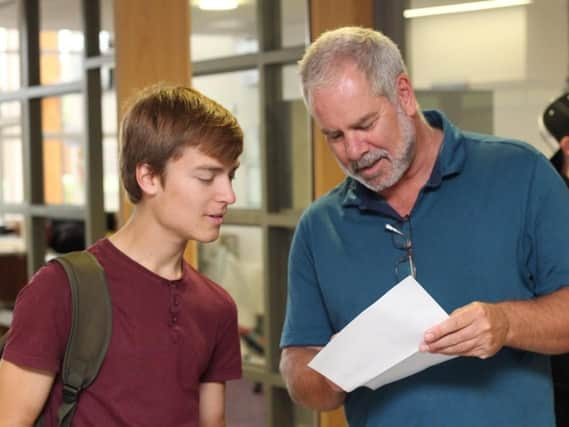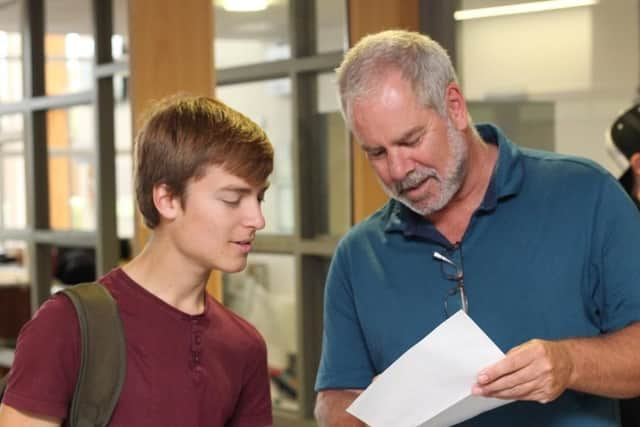A Level Results Day 2018:Â Why it doesn't matter if you don't have a career plan yet


Ask any careers advisor and they'll tell you the same: the majority - that's right, the majority - of youngsters don't know what they want to do. And that's nothing to worry about.
After all, how could you possibly know for sure what you want to do with your life before you've even had the opportunity to try things out?
Advertisement
Hide AdAdvertisement
Hide AdSure, choosing a career is an important decision, but it isn't one that will make or break the rest of your life. Far from it.


Loads of people try half a dozen jobs before finding one they truly enjoy, and many more end up working in a field completely different from what they studied.
It's alright to change direction, as many times as it takes. The trick is to not let career indecisiveness become debilitating.
'˜The first thing to realise is that people have long lives,'Â says Corinne Mills, a leading career coach and joint managing director of Personal Career Management.
Advertisement
Hide AdAdvertisement
Hide Ad'˜People are living a lot longer and working a lot later in life - and that actually opens up lots of opportunities for new experience.
'˜We work for a long time, and within our career we are going to do lots of different jobs. We're going to go in lots of different directions.
'˜You're not going to be in the same job at 20 as you will at 60, so don't worry too much about it.
'Besides, with the rate of technological advancements, that job isn't likely to exist in 20 years in that form,' she adds.
Advertisement
Hide AdAdvertisement
Hide AdCorinne, who is the author of the UK's bestselling CV book, You're Hired! How To Write A Brilliant CV, says what's really important for young people coming into the job market is to gather as many different experiences as possible.
'˜Have a think about what it is you might be interested in, and then go and try it,'Â she says.
'˜In that first job, you'll find there are things you like about it, and things you don't. That's great, because it gives you clues for what you might want to go and do next. It opens doors.
'˜Equally, if that first job doesn't work out, go and find something else. It's a really experimental time career-wise, so just embrace it.
Advertisement
Hide AdAdvertisement
Hide Ad'What I would say is that, if you can, get something that's going to give you contact with customers to some degree, because no matter what job you do, there's always going to be customers.
'˜Even if that's, you know, retail work or hospitality or working for a business that's got customers, give it a try and see where it leads you.
Again,'Â she adds, '˜don't worry if it doesn't work out and you don't want to pursue it.
'˜It will still serve to give you lots of useful experience and some really important clues as to what you might want to do going forward.'
Advertisement
Hide AdAdvertisement
Hide AdFor many teenagers, it's not getting a job that's the biggest concern right now, but what subjects to study post A-levels in order to map out some sort of career path.
Again, Corinne says you need to trust your instincts and do what's going to make you happy.
'˜There are some subjects that are going to be in high demand - such as the sciences - so if there are any that you particularly enjoy, then do them.
'˜But if they're not subjects you enjoy, then don't feel you have to do them.
Advertisement
Hide AdAdvertisement
Hide Ad'˜Education is all about knowing about critical thinking, it's about research, it's about gathering together your ideas... regardless of the subject. So choose things that you're interested in.'
So there you have it: if you are not sure what to study next or what occupational path to follow, don't waste too much time worrying about it. Just do something you like and get stuck into it.
'˜You don't know what you like and are good at until you try things,'Â says Corrine.
'˜Get as many experiences as you can while you're young and use each one to work out what you enjoy and what you don't want to do again - then spontaneously work out as you go along what kind of path you want to follow.'
Â